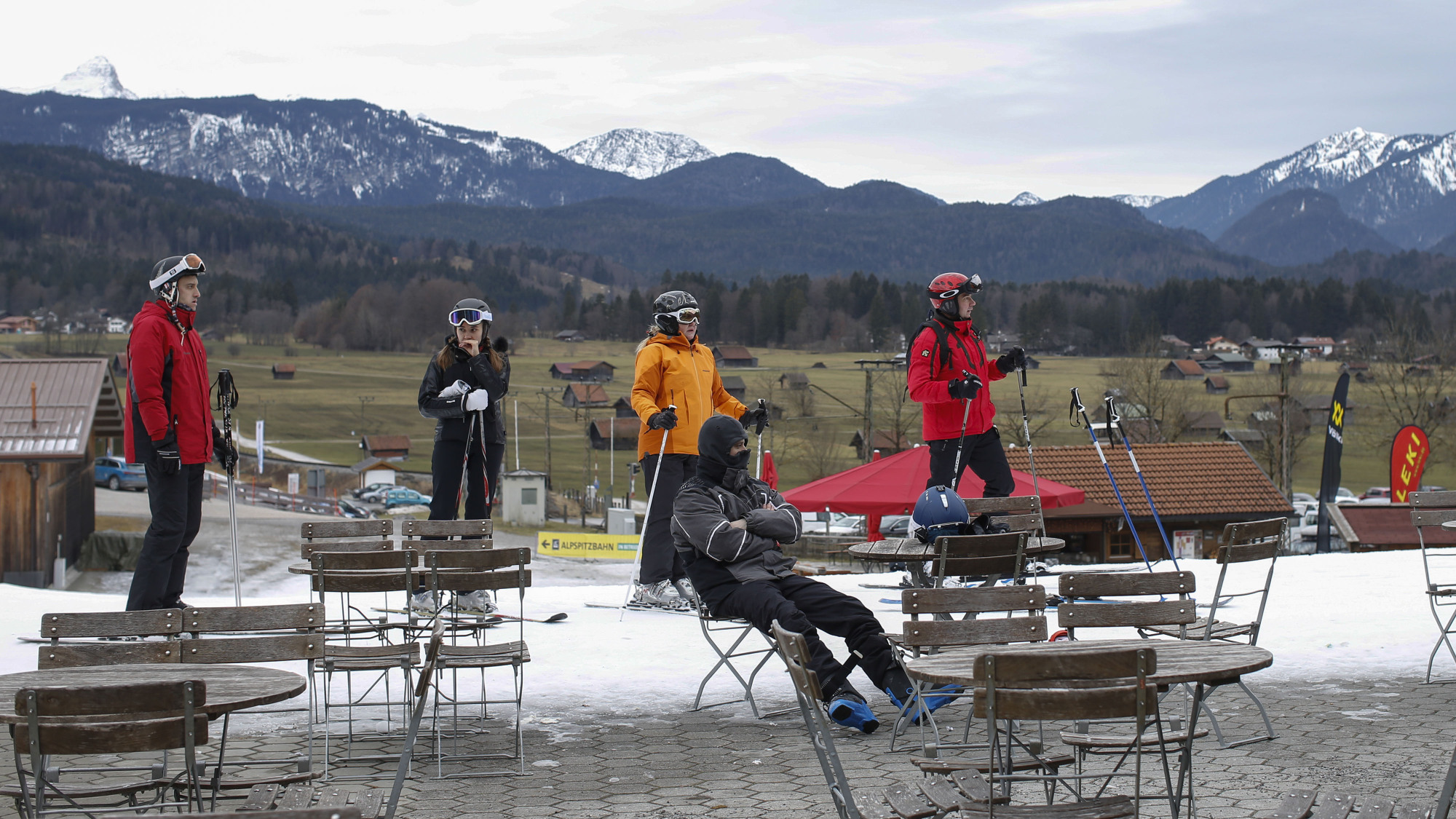At the northern edge of the Alps, ski runs near the foot of Germany's highest mountain snake down the greenish-brown slopes in narrow white ribbons of artificial snow.
Like other resorts at relatively low altitude, global warming has left its mark on Garmisch-Partenkirchen — the site of the 1936 Winter Olympics — putting the town's identity and affluence at risk. It's January, and there's so little natural snow that anxiety is building over whether upcoming ski races can go ahead.
In Garmisch and across the Alps, tourism is a key support for local economies. In neighboring Austria, it makes up just over 6 percent of economic output, while in the mountainous region of Tyrol the share is more like 18 percent. The ratio is similar for the Swiss canton of Graubuenden, thanks to resorts like St. Moritz, Klosters and Davos.


















With your current subscription plan you can comment on stories. However, before writing your first comment, please create a display name in the Profile section of your subscriber account page.